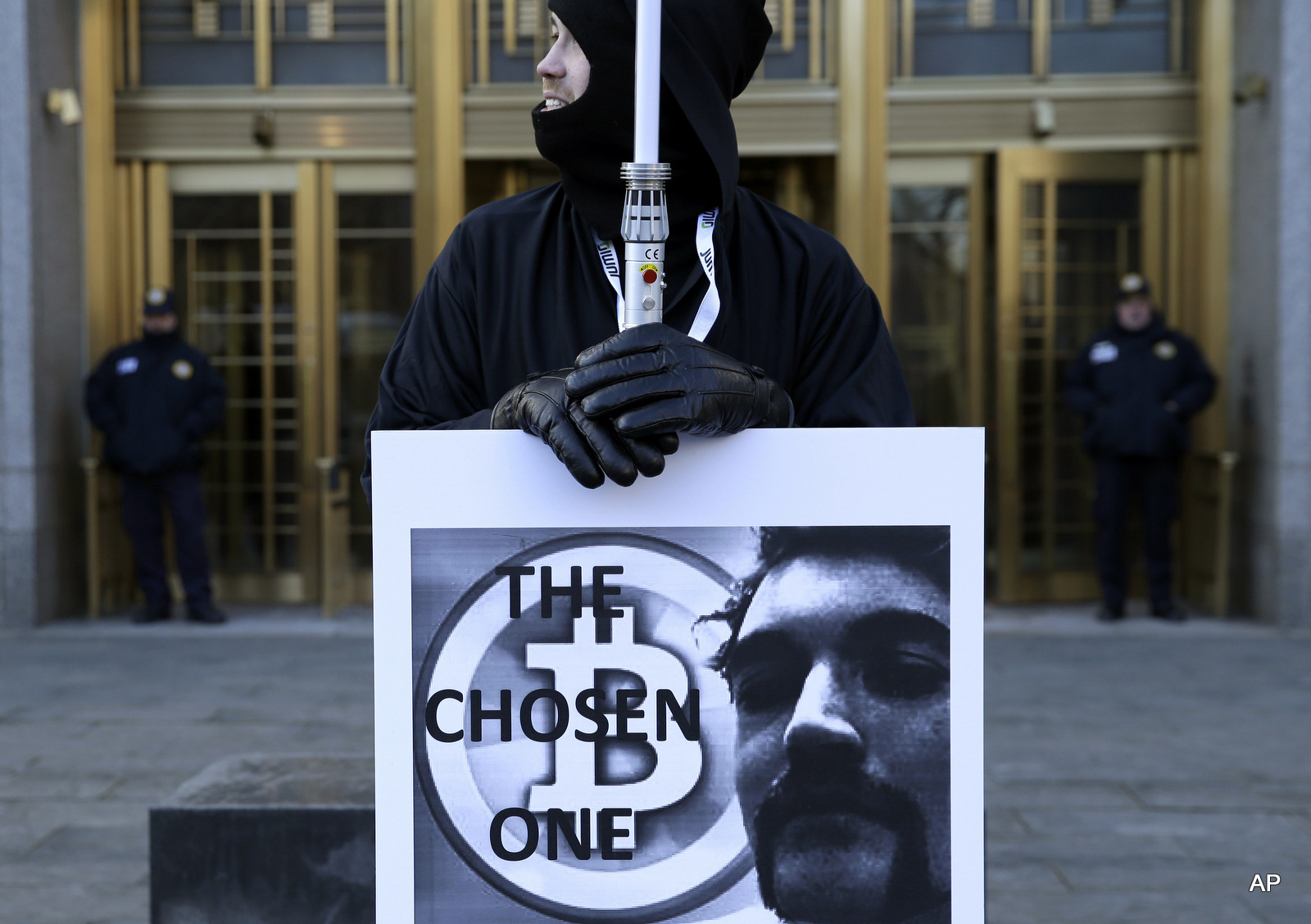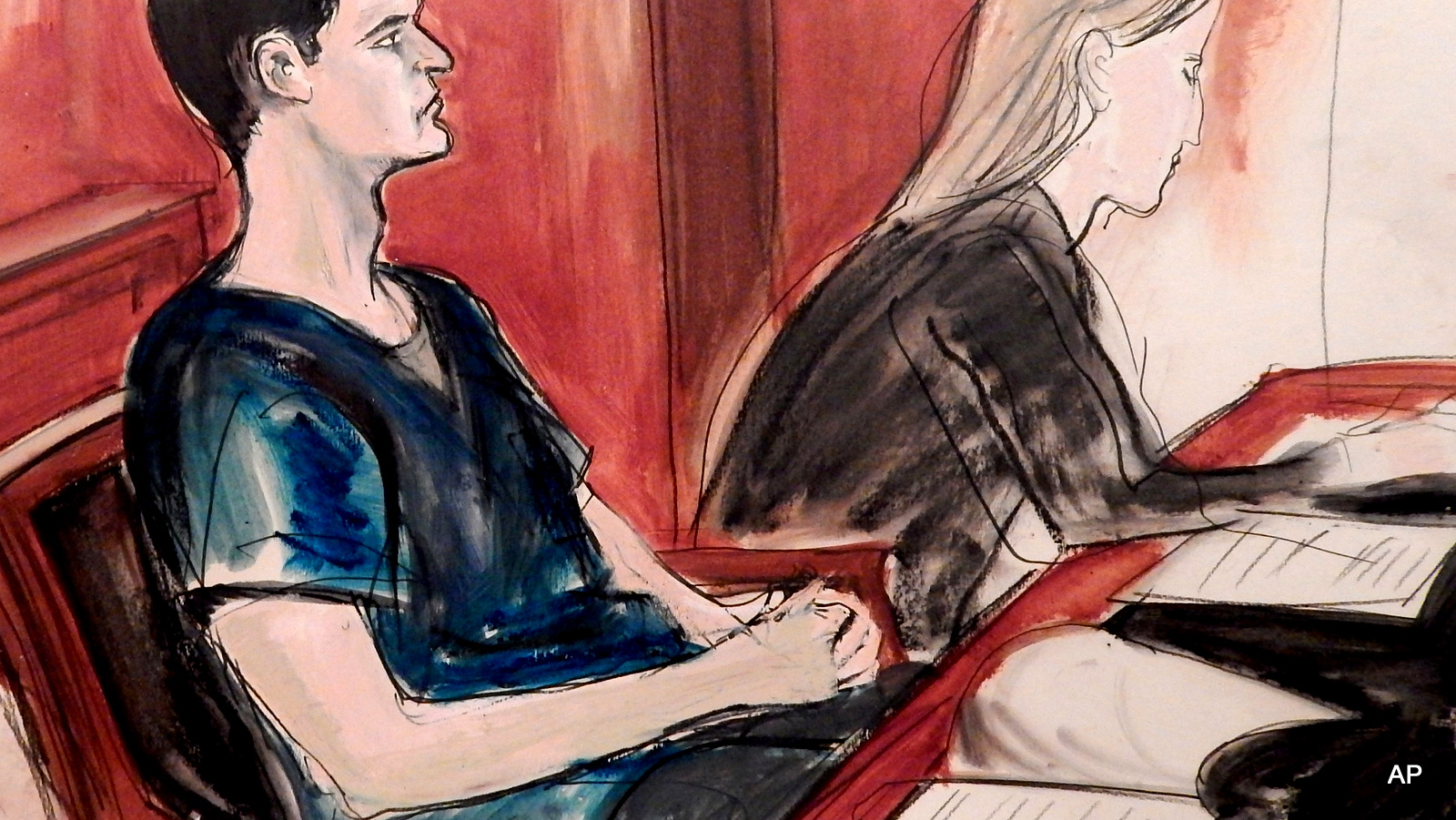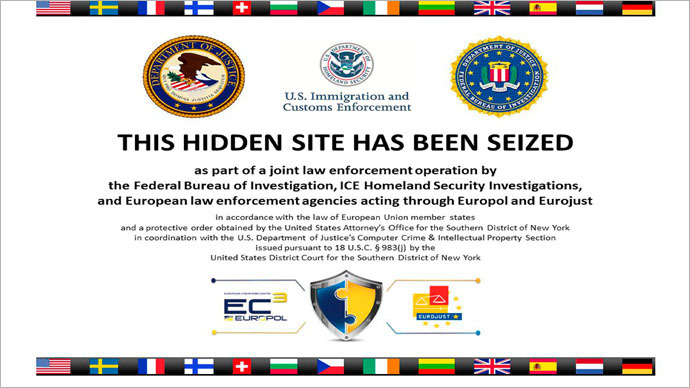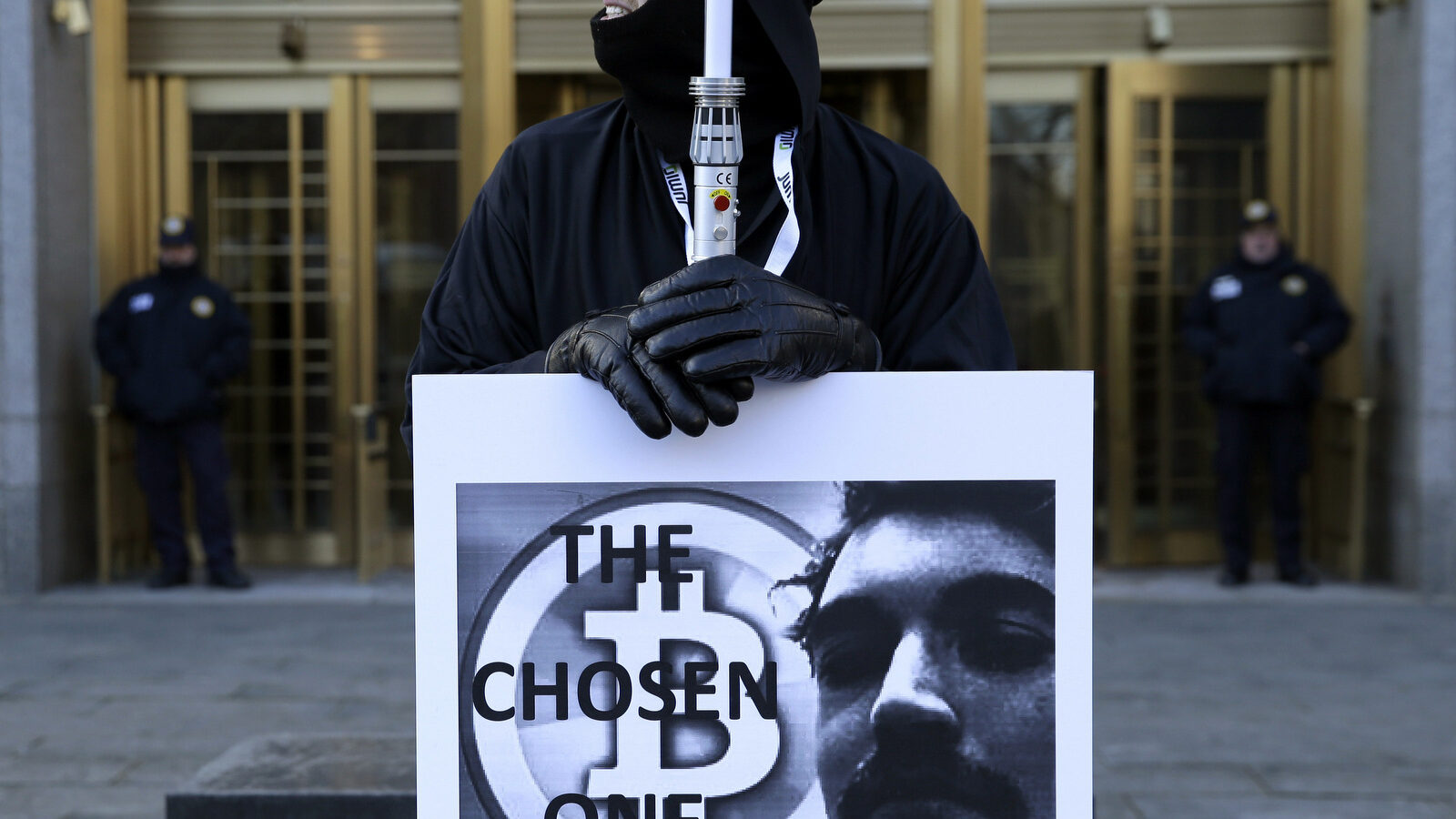
NEW YORK — Lyn Ulbricht has become figure known to tens of thousands of people around the world. She’s well-known member of the American Libertarian movement, and a fixture in the bitcoin and “Crypto-Anarchist” worlds. She’s also the mother of Ross Ulbricht, the convicted founder of the Silk Road online black-marketplace, and the administrator for FreeRoss.org.
Although she may not fit the stereotype of a user of the popular cryptocurrency or radical free-market anarchist, Lyn Ulbricht has become a major force in the fight against the U.S. “war on drugs” and what some believe is the unjustified treatment of her son.
The Silk Road trial concluded in February, after the jury took just three hours to convict Ross Ulbricht on all seven charges against him related to distributing narcotics, fraudulent documents, money laundering, and continuing a criminal enterprise. On May 29, U.S. District Judge Katherine Forrest sentenced Ulbricht to life in prison, plus 40 years. The government also ordered a forfeiture fine of $183,961,921.
“I really hope that this outrageous, draconian sentence is changed at appeal,” Lyn Ulbricht told HuffPost Live. “A friend of mine wrote me and said we are all in peril because of this sentencing. This is such an overreach. We are not supposed to have political prisoners in this country.”
She raises an important question: Is Ross Ulbricht a political prisoner being held for his political philosophy and radical activism? This, of course, leads into a broader issue of political prisoners in the United States and whether truly free speech and thought even exist in this nation.
“For a nonviolent ‘criminal,’ with zero priors, to be locked away for life with murderers and rapists — many serving a shorter sentence than his — is unforgivable by any moral standard,” Julia Tourianski, a bitcoin advocate and blogger at Brave The World, told MintPress News. “But we should not be surprised, considering the unlawful conduct of our agents of law that was witnessed over this past year, and not just this past year, and not just in this case. How much longer will we sit with our hands folded?”

Ulbricht also stands accused of paying for murders in five alleged murder-for-hire plots. While he was not officially charged in relation to this in the trial held in New York, he awaits trial on those charges in Maryland. Yet this did not stop Forrest from stating that there was clear evidence of those plots. During the trial and sentencing, government attorneys and the judge repeated the accusations as fact.
This is based on the doctrine of “relevant conduct,” which allows behavior to be brought before the court even if someone hasn’t been found guilty of that behavior. “If Ross were guilty of these accusations, why didn’t the government charge him for them along with everything else?” Lyn Ulbricht asked after the sentencing. “And if he is not charged, how is it fair to apply those allegations to sentencing?”
Another point of contention came in late March, after two former federal agents were accused of stealing hundreds of thousands of dollars during their investigation of the Silk Road. Carl Force, a former special agent for the Drug Enforcement Administration, and Shaun Bridges, a former Secret Service special agent, were assigned to a Silk Road investigation task force based in Baltimore. Force was the lead investigator working undercover, and Bridges served as a computer forensics expert.
According to a March press release from the Justice Department, Force “served as an undercover agent and was tasked with establishing communications with a target of the investigation, Ross Ulbricht, aka ‘Dread Pirate Roberts.’” Force was authorized to communicate with Dread Pirate Roberts online to gather information, but he allegedly went on to create several unauthorized, fictitious online identities.
“The Government’s efforts to keep the Carl Force scandal out of the public eye at trial is in itself scandalous,” said Joshua Horowitz, a defense attorney for Ulbricht. “The recently filed Complaint which names Carl Force as a defendant demonstrates that the Government’s investigation of Mr. Ulbricht lacked integrity, and was wholly and fatally compromised from the inside.” It remains to be seen what effect these cases will have for Ulbricht.
The looming murder-for-hire charges in Maryland and the questionable investigations by the government leave many questions unanswered. However, one thing is certain: Ross Ulbricht’s political philosophy and activism outside the confines of the law played a major role in his lengthy sentence.
A dangerous philosophy
Prior to his sentencing, Ross Ulbricht sent a letter to Judge Forrest asking her to save him his old age and give him the minimum sentence of 20 years. He also addressed the court moments before his sentence was handed down: “I have changed. I am not the man I was when I created the Silk Road.” He discussed missing the little joys of freedom: throwing a Frisbee in the park, Thanksgiving dinners, friends and family.

The 31-year-old has been described as dangerous, sociopathic and a threat to our “social fabric.” Ulbricht told the judge he is not a sociopath and not motivated by greed or vanity. “I wanted to empower people to make choices, to have privacy and anonymity,” he said at his sentencing.
During the government’s investigation of the Silk Road and their pursuit of the “mastermind” administrator Dread Pirate Roberts, Ulbricht wrote in his journal: “The US government, my biggest enemy, was aware of me and calling for my destruction. This is the biggest force wielding organization on the planet.” Although it is still up for debate whether Ulbricht acted alone in using the Dread Pirate Roberts moniker, it is clear that the administrator had similar views. In a 2012 post on the Silk Road forum, Dread Pirate Roberts wrote:
“Silk Road was founded on libertarian principles and continues to be operated on them. It is a great idea and a great practical system…It is not a utopia. It is regulated by market forces, not a central power (even I am subject to market forces by my competition. No one is forced to be here). The same principles that have allowed Silk Road to flourish can and do work anywhere human beings come together. The only difference is that the State is unable to get its thieving murderous mitts on it.”
Julia Tourianski, the bitcoin advocate and blogger, says Ulbricht’s actions and the Silk Road itself represent a form of activism. She told MintPress: “The Silk Road was a form of activism against the government, that’s why they’re crucifying him. He’s an example of why one should never act up against the Goliath.”
During the sentencing, the government argued that although Ulbricht was motivated “in part by a political agenda,” he must “go through the political process” to achieve change. Yet the strategy of both Ulbricht and Dread Pirate Roberts was specifically apolitical. Their particular strain of market-anarchism, known as agorism, calls for creating change by using entrepreneurship to create “counter-institutions” to the state, media, education system, and other institutions typically funded by government or corporate entities. Supporters of agorism believe this will lead to the establishment of free communities, or agoras, that can achieve change without voting or violence.
Forrest called this philosophy dangerous. Before rendering Ulbricht’s sentence, she told the defendant that it is “deeply troubling that you see the law as oppressive.” All evidence, she said, pointed to him believing that he was above the law. “You are no better than the law,” she said. “Your words reveal arrogance.”
“This was a political statement. It was an endorsement of their drug war. And the drug war is a failure”
She continued, saying it was necessary to give such a lengthy sentence so that anyone who might “take up the flag” of Ulbricht or the Silk Road would know they will face consequences.
Several times throughout Forrest’s speech she mentioned being humbled that she was tasked with protecting the social fabric. She made references to the founding fathers and democracy, and pointed at the American flag. She refused to acknowledge that Ulbricht was motivated by creating an economic experiment. ”I don’t think you left the philosophy. I don’t think that you know you hurt anyone,” she told Ulbricht.
Lyn Ulbricht, Ross’s mother, told MintPress she feels Forrest was delivering a political speech. “I thought they were supposed to profile the individual, not make a political statement,” she said, calling the sentence “shockingly harsh.”
“Charles Manson received less of a sentence,” she continued. “This was a political statement. It was an endorsement of their drug war. And the drug war is a failure”
The final days of the ‘war on drugs’?
The Silk Road was designed to be a marketplace where anyone, anywhere, could conduct transactions somewhat anonymously, using the cryptocurrency bitcoin to purchase goods without tax. The majority of the website’s business involved selling substances and plants that have been deemed illegal by many governments around the world. Supporters of the Silk Road say this allowed for a decrease in violent interactions between drug dealers and patrons. Critics — including the government and Judge Forrest — say the website lowered the barrier to access drugs and allegedly led to the deaths of at least six individuals.
The Dread Pirate Roberts’s own words indicate that he (or they) believed the so-called “war on drugs” was a failure, and the Silk Road was the beginning to the end of prohibition. The Dread Pirate Roberts wrote in September 2012:
“Silk Road has already made an impact on the war on drugs. The effect of the war is to limit people’s access to controlled substances. Silk Road has expanded people’s access. The great thing about agorism is that it is a victory from a thousand battles. Every single transaction that takes place outside the nexus of state control is a victory for those individuals taking part in the transaction. So there are thousands of victories here each week and each one makes a difference, strengthens the agora, and weakens the state.”
The notion that individuals should be free to make their own choices is consistent with Ross Ulbricht’s libertarian philosophy as well. For those generations of people who grew up in the era of decriminalized or legalized cannabis, prohibition may seem like a foreign concept, or maybe simply a failed one. Indeed, there is a shift taking place, with more countries around the world decriminalizing drugs and plants and trading prison time with more efficient addiction treatment. There are also hundreds of bills being introduced across the U.S. that would legalize or decriminalize cannabis for both medical and recreational purposes on both local and state levels.

Since Ulbricht’s arrest and the end of the Silk Road, Silk Road 2.0, Agora and several other online marketplaces appeared to fill the demand for untaxed, voluntary transactions. The situation resembles the early days of music downloading, when the popular downloading website Napster was shut down. Despite that initial loss the Internet has continued to make it easy and free to download music and movies. Jeffrey Tucker, director of Digital Development for the Foundation for Economic Education, told MintPress he believes the Silk Road will play a similar role.
“There are always people willing to take the risk. And the new ones are more decentralized and less vulnerable to being taken down,” Tucker said. “It’s the future and no one can stop it.”
If this is the case, Forrest’s ruling may ultimately prove short-sighted.
Meanwhile, attitudes toward cannabis are shifting. But will attitudes toward full legalization or decriminalization of other drugs also shift? The Silk Road was not only dealing in cannabis. Every drug imaginable was available for purchase on the black marketplace, and because Ulbricht was paid a commission on all business he is seen as party to the illegal deals.
During Ulbricht’s sentencing, two parents spoke about their sons, who died of drug use attributed to drugs purchased through the Silk Road. The father of “Brian B.” told about his son’s death from heroin: “Ulbricht wanted to enrich himself. He did not consider the danger or the fact that these drugs offer no medical value.” The mother of “Preston B.” told the story of her 16-year-old son experimenting with a drug purchased on the Silk Road and jumping from the second story of a hotel. “The Silk Road made drugs easily accessible to anyone,” she reminded the court.
Lyn Ulbricht says those stories are horrifying, but her son should not be held responsible for the deaths of “Brian B.” and “Preston B.” Ross Ulbricht’s lawyers commissioned a study by forensic pathologist Mark Taff, which calls into question what role the Silk Road may have actually played in those deaths.
Ulbricht has also received support from Stefanie Jones, the nightlife community engagement manager for the Drug Policy Alliance. On the Drug Policy Alliance’s blog, Jones asks whether putting Ulbricht behind bars will accomplish anything. She argues the Silk Road was a beneficial market for three reasons: It reduced the potential violence associated with buying drugs, allowed for better knowledge about content and purity, and encouraged harm reduction among users.
Forrest completely dismissed the harm reduction argument. She called the Silk Road an “assault on public health” and said it was a privileged argument that Ulbricht and the Silk Road made the drug market safer. “The drug user is only one side of the equation,” she asserted. “You must consider the social cost of drug use.”
But what happens to that “social cost” if the populace no longer recognizes the established drug laws as just or moral? In the case of Ulbricht and the Silk Road, an individual created a website that allowed people to buy and sell any product they wanted without tax. It was the ultimate experiment in individual freedom that necessitated a sense of personal responsibility. The war on drugs has not succeeded in putting an end to drug use. Instead, it’s created a situation where bloated government agencies use tactics such as the “reverse sting” to engineer crimes that lead to lengthy prison sentences in order to continue to justify the policies. Supporters of Ulbricht also point out the hypocrisy of the U.S. government fighting a war on drugs while having soldiers protect poppy fields in Afghanistan — to these supporters Ross Ulbricht is another victim of the drug war.
Forrest said drug-related “violence is not going to go away with one or 1,000 Silk Roads.” Maybe she’s right, but what would the country, the prison system, addiction treatment, and drug use look like if those who chose to partake of drugs were allowed to do so using a website that was safe, clean and accountable?
Perhaps over time this process would outpace the desire and need for dangerous drug deals on the street. If the war on drugs was ended in favor of more sensible policies, ideas like the Silk Road might see massive growth in use and eventually create a safe way for people to exercise their freedom to make decisions about drug use.
Related Video: How the Silk Road Trial Could Chill the Internet | Interview with this article’s author, Derrick Broze.


